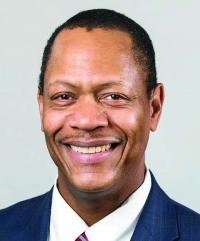September 14, 2017

The UMass Building Authority responded forcefully against proposed legislation to hem in the university’s development arm, a portion of which went to a hearing at the State House on Tuesday. Just three weeks remain for developers to respond to the university’s Request for Information (RFI) on potential development at the former Bayside Exposition Center on Columbia Point, a prime waterfront property and a source of controversy over previous covert discussions about the site’s best use.
Local politicians and community leaders alike were taken by surprise in January when they learned through the media that the Kraft family, which owns the New England Patriots and the New England Revolution soccer team, was in talks with UMass Boston to construct a 20,000-seat, $250 million soccer stadium on the 20-acre Columbia Point parcel.
After an outcry about the opaque process, the Krafts withdrew their plans, but the surrounding communities continue to hear of development projects being pitched for Morrissey Boulevard and Mount Vernon Street that are out of synch with earlier master plans for the area.
Planning and zoning changes to the area need to “have teeth” said Bruce Shatswell during a discussion of the RFI at a Columbia Savin Hill Civic association meeting on Monday.
On Jan. 20, state Sen. Linda Dorcena Forry and state Representatives Nick Collins and Dan Hunt filed bills that would mandate an open and public process for UMass development projects. This new legislation would require that the university be subject to local zoning regulations if any of its property is to be developed for non-academic purposes. It would also end UMass’s exemption from the state’s open bidding process, remove tax exemptions for public-private partnerships, and restricts the university from allowing private developers to use their bonding capacity. The three bills -- H.3210, H.2996, and H.3628 -- are moving through the Legislature via in separate committees.
Tuesday’s hearing before the joint committee on Municipalities and Regional Government addressed H.3210, which specifies the definition of educational buildings under the UMass Building Authority’s control. In its entirety, the bill reads: “For the purposes of this section, the use of land or structures for educational purposes owned or leased by the University of Massachusetts Building Authority shall require that education be the primary use of the facility and not incidental thereto.”
If passed, this law would limit the type of structure the UMBA could construct without standard public input. It would rule out independently pursuing a project like the stadium, because the educational purpose would be “incidental.”
On Monday, Patrick O’Brien, Sen. Forry’s legislative director, told members of the Columbia-Savin Hill Civic Association that “there is a clear difference between a major league soccer stadium that’s going to be used for things like concerts, as well as soccer and things of that nature, and an educational facility, a classroom building. This law would make sure that that defines educational purpose.”
In conjunction with the other bills, the new legislation would mandate a standard Request for Proposal (RFP) be issued for any non-academic properties, and that the process go through normal open city and state reviews.
No one offered spoken testimony at Tuesday’s hearing, but the UMass Building Authority board submitted a letter of opposition to the bill. In his written testimony, board chairman Victor Woolridge said the bill’s passage “would serve as a detriment to the students and families of the University of Massachusetts.”
State funding for UMass capital spending is on the decline, Woolridge said, so the UMBA’s ability to enter into public-private partnerships for developing their land “is critically important to UMass’ success more than ever.”
Public-private partnerships, which help manage costs, often involve leasing UMass land and agreeing upon a shared revenue stream from any development. The bill before the committee would restrict their ability to solicit those partnerships by limiting using the university’s state incentives for private developers.
“The negative ramifications of such limitations to the University, its students, and the entire Commonwealth are immeasurable,” Wooldridge wrote. Any increased costs would blow back onto students and their families, he said.
Woolridge noted that the UMBA is seeking responses through the RFI for the Bayside parcel, which asks developers to offer suggestions on “how to maximize the value of its land for the benefit of the University.”
The RFI, which is non-binding, envisions a “modern day Harvard Square,” and asks that any interested developers take into consideration prior planning done for the area, including UMass Boston’s Bayside Charretting Process, the Columbia Point Master Plan, and the UMass Boston Master Plan.
“There are obviously some concerns,” said Columbia-Savin Hill Civic Association president Desmond Rohan. “Obviously I respect the [Columbia Point] master plan, and I want to see [it] come to fruition.”
Civic groups have not had a formal conversation about this proposal, he said. They plan to reach out to the University after the RFI closes out.
Rohan added that the proposed bills “sound like they are positive for more community communication and to bring people to the table to understand exactly what’s happening down there, so I’m very supportive of those initiatives.”
City Councillor Frank Baker told the civic meeting that he hopes they have a seat at the table regardless of legislation filed, using the Columbia Point master plan as “a jumping off point.”
The legislative committees have not taken any binding action on the bills, one of which has not yet had a hearing.
Villages:


